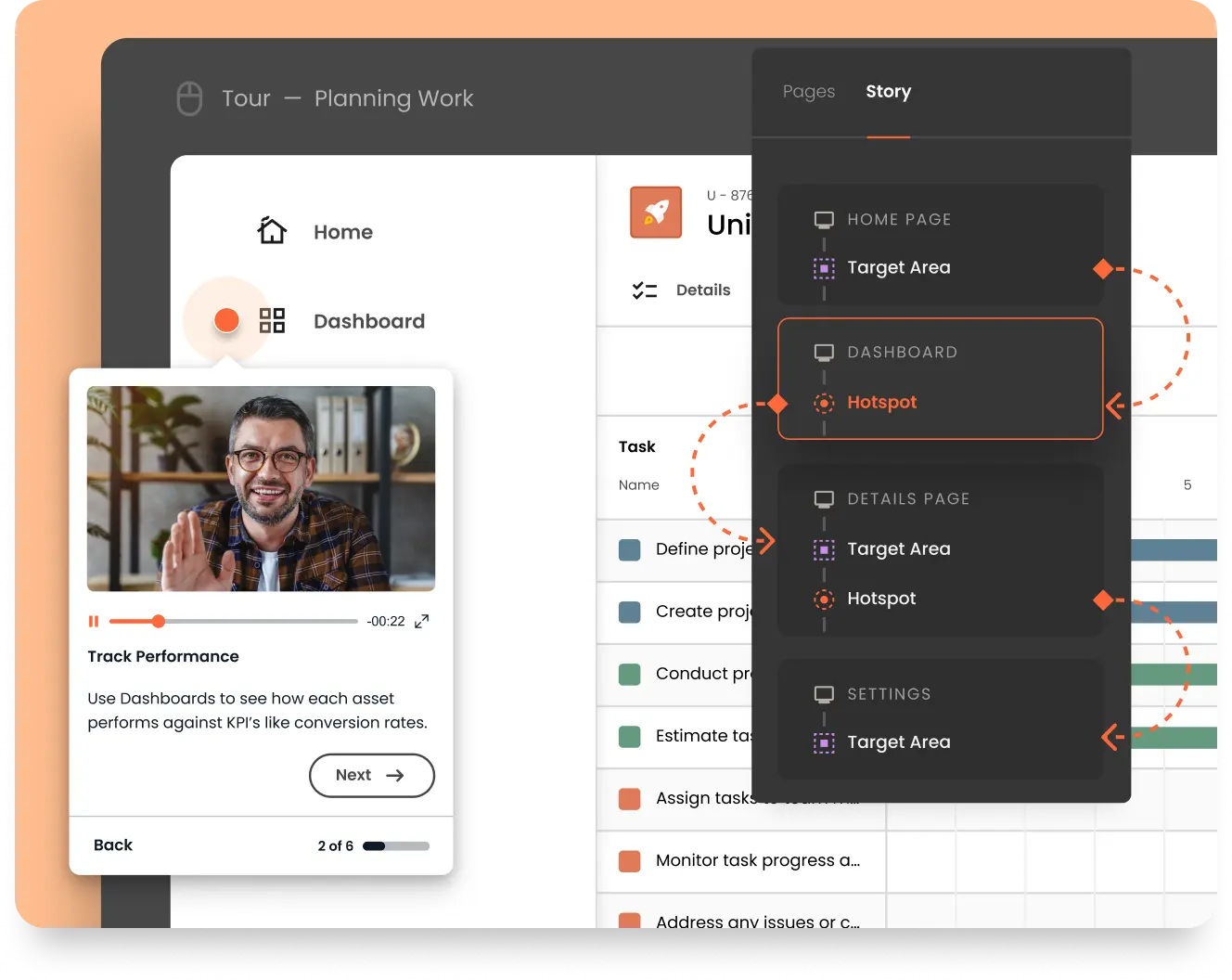For enterprise clients, purchasing from your company is an expensive, long-term commitment. Before they make the investment, they need to know your team is trustworthy and understands their needs. That’s why building relationships is so important. By fostering close connections with enterprise clients, your team can help them identify the best solutions for their needs, accelerate the sales process, and close more deals.
To turn your sales team into ideal enterprise partners, make it clear to them why these relationships are so important to maintain and what steps they need to take to build a trusted connection with clients.
Why Long-Term Relationships Are Essential to Enterprise Sales
Enterprise sales accounts don’t take purchases lightly. Due to the size of the deals that enterprise businesses engage in, trust and value are central to their product search.
Enterprise accounts are unlikely to make quick decisions with the mindset that they can change providers on a whim. Instead, enterprise buyers seek long-term partnerships with brands they can rely on and build a rapport with.
Sales teams that can establish this advisor relationship with enterprise partners will reap benefits, such as:
- Less volatility
- High average revenue per deal
- Improved trust within the buyer organization
- Upselling and cross-selling opportunities
By investing time, effort, and resources into nurturing your relationships with enterprise partners, you can sell without selling. This means your team can gain consistent yearly revenue from a single client based on trust and personal connection, rather than direct sales tactics.
How to Become a Trusted Enterprise Sales Advisor
To secure the trust and confidence of an enterprise buyer, your team must take the right steps toward building a healthy client relationship. Add these tactics to your enterprise sales strategy to turn your team members into trusted advisors.
Be Proactive
Your sales team should be able to anticipate the needs of your buyers before they explicitly mention them by tracking online behavior, industry trends, and demo analytics. By doing this, your team demonstrates attention to detail and expertise that will increase your buyer’s trust and your team’s perceived credibility.
Once you’ve identified these needs, your team can make it easy to offer enterprise stakeholders the context they need at each stage of their buying journey using tools like Consensus. Consensus allows your team to share automated demos on demand to engage prospects, enhance marketing campaigns, grow customer accounts, and empower channel partners. The result is a 30% faster sales cycle where buyers feel empowered to learn at their own pace and align with fellow enterprise stakeholders.
Establish Personal Connections
Enterprise clients are looking for long-term relationships with companies and people they like. When you’ve established a relationship with an enterprise client that goes beyond purely business, you experience less friction throughout the partnership, and even open up new revenue opportunities.
Encourage your team to connect with clients on social media channels like LinkedIn and chat about more than work during client meetings. Even if a client leaves their role at the company, by staying in touch, you could create opportunities to re-engage them later on.
Having your team build relationships with enterprise buyers can generate internal champions — buyers at your target company who will advocate for your product. Whether they fight for you with your current client or encourage new relationships when they move into different positions elsewhere, internal champions can help increase your win rate by up to 114%, shorten sales cycles by 12%, and generate an average of 54% bigger deal sizes.
Engage in Social Listening
60% of B2B buyers use social media to discover new software tools, so it’s important to stay in the know about what your clients are saying online. If your team discovers that clients are complaining about a certain issue they’re having, your team should use this knowledge to pitch your product as the solution to their problem. However, this doesn’t mean your team needs to respond to every post or comment. Hang on to this information until it can be used most effectively.
Create Feedback Loops
As with any relationship, communication between you and your enterprise sales clients is a two-way street. In the same way buyers are learning from your team, your team must also be open to feedback about your product or process. Creating an open dialogue with your enterprise clients will unlock new ways to optimize your sales process. You may even receive first-hand suggestions on how to improve your product through future updates.
Consider using tactics such as:
- Post-demo and post-sale surveys
- Feedback forms
- Buyer focus groups
- Interviews
- Social media
- Online reviews
Your team’s specific feedback loops will likely depend on your clientele, but trying different methods will help you dial in on the optimal strategy.
Build Trust Through Results
Don’t just tell your enterprise clients how great your product is — show them. Enterprise clients are looking for tangible results, especially those achieved by other enterprise clients. By using case studies, client results, and other forms of social proof, your team can show their credibility and convince buyers to make a purchase.
Enterprise clients are also interested in how your product works and what tangible benefits it has for them — especially considering 95% of B2B buyers are the users of the tools they purchase. Using product-centric sales tactics like sandbox environments and interactive video demos allows enterprise stakeholders to learn more about the value of your product through hands-on experience.

Once they’ve tried your product, you can offer them more benefit-focused, buyer-led resources — such as ROI models and savings calculators. Enterprise clients who are empowered by using these resources can then ask the right questions on client calls and will feel more confident working with a company that has clear proof of their product’s effectiveness.
Create Valuable Enterprise Sales Relationships
Building a business relationship with enterprise clients is one thing, but fostering a personalized connection that drives value is another. To create better relationships with your enterprise customers, consider what tools and strategies can help you prove your worth. Learn more from industry experts on how to break into the enterprise space and expand your sales opportunities at our blog.
